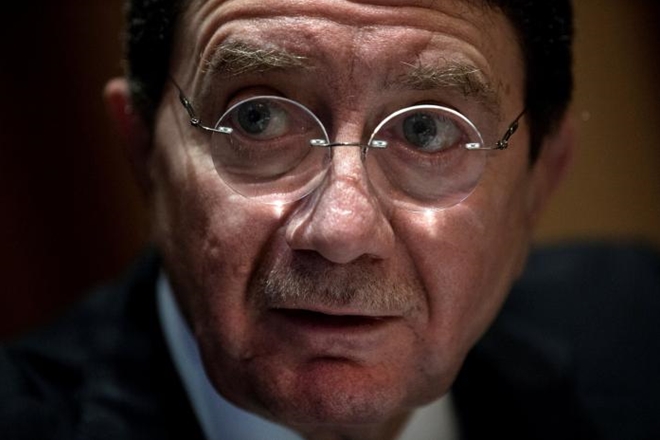Security still clouds global tourism outlook-UN tourism body head
- United Nations to honor a Vietnamese farmer
- Trump becomes 45th President of the United States
- United States holds 139th repatriation ceremony
Taleb Rifai, a Jordanian who is Secretary-General of the United Nations World Tourism Organization, also said the ban was partly the result of Americans not being well-traveled.
"I completely believe our friends across the Atlantic are developing this isolation attitude because they are not international travelers," Rifai told Reuters in an interview in Athens.
 |
| Secretary-General of the United Nations World Tourism Organization (UNWTO) Taleb Rifai speaks during an interview with Reuters in Athens, Greece, March 1, 2017. REUTERS/Alkis Konstantinidis |
"Sixty three percent of U.S. citizens don't even have a passport so why are we surprised...If you travel your eyes open, your mind opens, you become a better person," he said.
Rifai said global tourism was not expected to be affected by the ban. Tourists to the U.S. would simply pick another destination instead.
However, he said the U.S. had lost 185 million dollars in one month since the ban was introduced, and stood to lose tens of millions each month if similar policies continued.
"Multiply that by 12 months - we are talking about a quarter of a billion (dollars) each month, which is tremendous."
The losses were not necessarily from the countries directly affected. "You don't want to go to places that you are not welcomed, why should you? Options are everywhere."
Rifai, whose term ends this year, praised Greece for its reception of more than 1 million refugees at the peak of the migration crisis in 2015.
Greece he said "was correct in receiving them... by correct I mean abiding by international law. That's why you were not penalized by tourists," he said of the country, on its third international bailout since 2010.
Greek tourism revenues are seen rising by up to 9 percent in 2017. Arrivals have been rising for years, despite the hurdles.
"That tells you something," Rifai said adding that the attitude of receiving refugees while struggling with the debt crisis was 'admirable'.
"I'm here to pay respect to that," he said.

